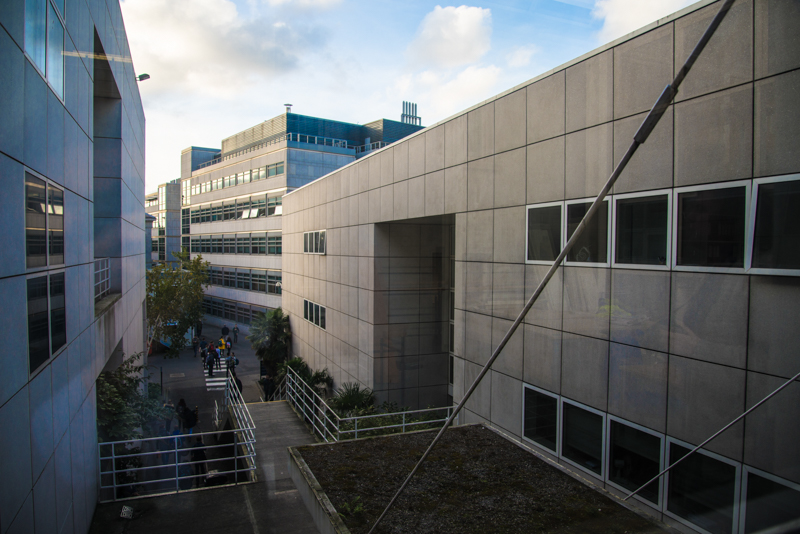The development of a proposed student space in the O’Reilly Institute is to be postponed due to ongoing negotiations with the School of Computer Science and Statistics, with funds for the project diverted towards a similar space in the student common room at St James’s Hospital.
The planned student space in the O’Reilly came alongside the successful completion of spaces in the Arts Block and Hamilton. Speaking to The University Times, however, President of Trinity College Dublin Students’ Union (TCDSU), Kieran McNulty, stated that the delay was “disappointing”, stating the union was “told that it went through all the relevant committees and it was just a matter of ordering furniture”.
“I don’t think it’s appropriate to say that there should be a delay in the O’Reilly foyer, or for computer science to say that they hadn’t heard about it when we’d been told that it had gone through all of the relevant committees.”
“It is difficult when you have students sitting on the ground, eating lunch and they’re asking for these student spaces, and that we’re told ‘wait and see’ when it’s clearly a priority and it’s clearly needed”, McNulty added.
Today, TCDSU launched a petition calling on the College to prioritise student spaces and to “bring student spaces to the Hamilton end of campus”. “It’s basically saying to college: this is our priority, this needs to be a priority for you”, McNulty stated.
Speaking to The University Times, the Dean of Students, Prof Kevin O’Kelly, explained that “it’s a bit challenging because it’s actually a through space and actually sometimes it’s an exhibition space, and it was just, the negotiations were bogging down”.
McNulty states that the union was not aware that the funds were being diverted to St James’s. “There needs to be more effective communication and action when students are asking for these things and updates on these things”, McNulty stated.
O’Kelly describes the student spaces project as one of the “quick hits” proving that such spaces can be created quickly with minimal disruption and cost. “The idea for the student spaces is that they can be completed quickly. There’s a whole bigger project related to learning spaces which is going to be huge. But because it’s huge, it’s going to take lots of time and lots of money”, O’Kelly added.
According to O’Kelly, it was students and staff from St James’s that came forward and identified the room as one such space. O’Kelly added that the Student Life Committee and the working group “decided to divert funds to St James’s, enough to refurbish the room”. It is hoped that this will help to alleviate feelings of isolation and help to improve the student experience. O’Kelly states: “It’s easy to see it as a hospital where they are but it is actually where students spend most of their time.”
The project to set up the spaces in the Arts Block and Hamilton is half-funded by TCDSU, with the other half provided by the the Director of Student Services. This money goes towards furniture like sofas and tables, as well as charging points. However, the funds for the Parlour in Goldsmith will come directly from TCDSU.
Funds for the common room in Goldsmith were originally expected to come directly from TCDSU as part of the Higher Education Authority (HEA) fund, which arose after the HEA fined Trinity in 2012 for improper stipends to tutors. “We have been active since July and August on the James’s common room so I don’t think student services coming in on this and delaying it further is going to work, but we’ll see”, McNulty stated.
Both rooms in the Arts Block and the Hamilton Building have now been completed and fitted out, with room 4071 in the Arts Block “now done and being used”. “I think now is when we come in with a bit of artwork and spruce it up slightly”, O’Kelly added.
The group hopes that staff and students will come forward and identify further spaces: “Our hope is that students will step up and say, ‘there’s a room here that’s never used and we’d love it’.”
O’Kelly stressed the need for spaces where students can relax, unlike the typical learning spaces students are used to: “This is going to be a very clear graphic, we want students to see them as spaces where you can spend an hour or two, where you can just sit and chill.”
There should be no distinction, as O’Kelly sees it, between these different student spaces. College hopes that the spaces will be open to all students, regardless of whether they’re an arts or a science student.
Speaking to The University Times in September, Declan Treanor, Service Director of the Disability Service, described the new spaces as multifunctional, in that they can both be used a space to work or eat. He noted how some societies have difficulty finding space, and added that societies would be able to use the space for activities and events. This will be piloted by the Faculty Office, and will be subject to demand.
Earlier this year, a report by a major UK consulting firm, Turnberry Consulting, found that Trinity lags behind other universities when it came to utilising the space it has available for students.
Sinéad Baker contributed reporting to this piece.







